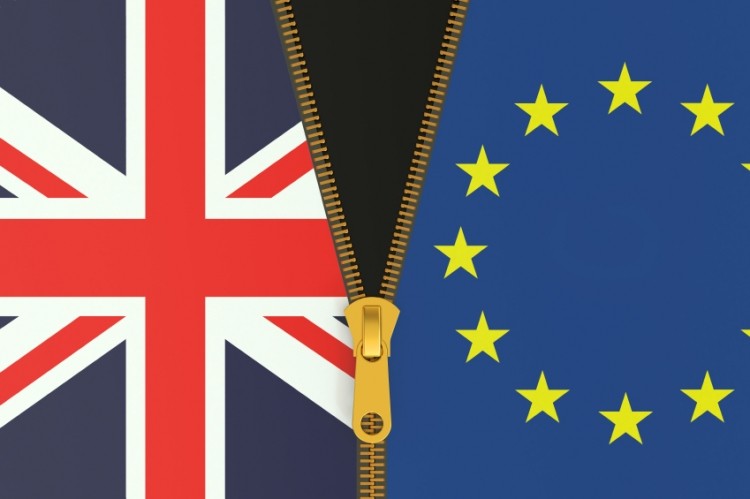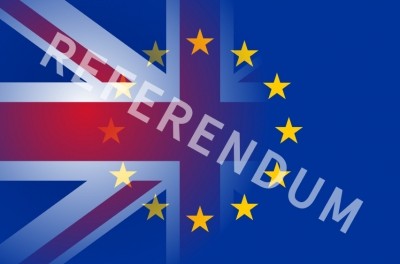Brexit Survey: nearly one-third of voters would consider relocating their companies outside of the UK

Over 55% of the respondents in the FeedNavigator survey did not see a more robust livestock production system arising out of the UK exit.
Nevertheless, around 26% of pollsters disagreed with that outlook – they do foresee dairy, pig and poultry farming benefiting significantly from Brexit.
Those not swinging either way on this subject, the ‘don’t knows’ were high enough - at 19% of survey respondents.
Meanwhile, some 40% of our pollsters said they would not consider relocating their companies outside the UK, but, interestingly, 30% of respondents indicated they were ready to debate that possibility and another 30% were undecided.
Business impact
Over half of the feed businesses polled – 54% - agreed food prices in the UK would increase post Brexit, and, even more effusive in their response on that, were 27% of survey respondents who said they strongly agreed that such a spike would occur.
There was again an obvious voting pattern in terms of the bureaucratic implications of the EU referendum for UK industry – about 41% of respondents disagreed and 22% strongly disagreed that it would mean less red tape for their businesses.
However, it was definitely more of a photo finish on the question of whether the UK’s vote to leave the EU-28 would have an overall negative effect on feed companies or agribusiness related industry. Just over 29% and nearly 12% of respondents agreed and strongly agreed respectively Brexit would be detrimental for business.
On the other hand, some 24% of participants were more optimistic about the fall-out, they disagreed there would be a negative effect on industry. Endorsing that view even more robustly, nearly 18% strongly disagreed with the more pessimistic outlook for UK agribusiness post Brexit.
In terms of whether the UK will see new markets opening up for British goods on the exit from the EU, our pollsters would seem somewhat skeptical about such a future trading scenario, at this early stage, at least. About 29% disagreed and 25% strongly disagreed with that outlook.
But just under 22% of respondents agreed that Brexit would result in such trading opportunities for the UK, and a minority, some 6% of our pollsters, strongly agreed new markets would open up for UK exports.
Supply Chain
It came down to the wire in terms of how our respondents saw the implications for their supply chain post Brexit. Those voters who agreed and strongly agreed there would be supply disruptions because of the UK exit edged it at around 43.1% of respondents. The combined total of voters who said they disagreed and strongly disagreed with the statement was 41.1%.
But it was roundly evident where the voting trend lay on the statement that Brexit would mean a flood of cheap imports entering the UK – a little over 41% of survey participants disagreed that would occur, with nearly 8% strong disagreeing it would be a likely result.
Legislation and standards
And again, in a more clear-cut fashion, 42% of those polled agreed the UK will continue to apply EU feed, food and beverage legislation with 23% in strong agreement about such an outcome for the regulatory landscape post Brexit.
Nearly 52% of voters disagreed the vote to leave the EU would result in watered down food safety standards.
In combining totals of agreed and strongly agreed, 40% of respondents feel Brexit will mean their businesses will face significant EU tariffs. The votes of those on the opposing side, the respondents who disagreed and strongly disagreed such an event would come to pass, reached 30% when the two totals were amalgamated.
Investment and employment
A high percentage of pollsters disagreed Brexit would result in lower sales volumes for their company – 40% disagreed and nearly 8% strongly disagreed this would be the case.
But it was still a close run race with 25% of participants in agreement that sales volumes in their businesses would decline and some 14% of voters strongly agreeing there would be a downside of that nature for their businesses.
We got a mixed bag reaction to the question about likely redundancies in a post Brexit landscape – 31% agreed job cuts would be an inevitable negative outcome in the short-term, and 4% of pollsters strongly agreed their companies would have to make employees redundant.
On the contrary, 29% and nearly 10% of respondents disagreed and strongly disagreed respectively that such drastic measures would be necessary. The ‘don’t knows’ were significantly high on this topic, coming in at 27% of voters.
In terms of there being difficulties in the sourcing of unskilled labor post Brexit, when combining the totals of those who disagreed and strongly disagreed, their point of view blatantly won out – some 60% of pollsters did not see such restrictions on that kind of hiring arising as a result of the EU exit.
Brexit recap: what we know so far:
It is just 15 days since Britain voted to leave the EU but already we have seen politicians of all shades resigning in the UK, sterling hitting 31-year lows, commercial property investment jitters, stock markets falling and rising and the Bank of England indicating a likely cut in interest rates.
Interestingly, the UK business secretary has already opened talks with India on trade post-Brexit, and is planning similar meetings with the US, China, South Korea and Japan, according to a report on the BBC today.
International regulation consultants, Hogan Lovells, have tried to stay on top of developments since June 23.
Here is how those legal experts see it:
On the timing of negotiations:
“While the European Council wants the UK to specify its intentions as soon as possible, President Donald Tusk has recognized that ‘some time is now needed to allow the dust to settle’ in the UK
“The European Council has been particularly firm on one point of the substance of the negotiations on the UK’s withdrawal: there will be no access for the UK to the internal market without acceptance of the four fundamental freedoms of people, goods, services and capital. According to Juncker, such acceptance must be without exception and nuance.”
On the fundamental question of trade between the UK and the EU
“EU trade commissioner, Cecilia Malmström, stated last week that talks on a new trade deal between the UK and the EU should not start until after the so-called withdrawal arrangement is completed.
“She indicated that following the UK’s exit and pending the entry into a new trade deal with the EU, business would be conducted with the UK as a ‘third country’ under World Trade Organization (WTO) rules.
“This suggests that the European Union will only focus on the terms of the withdrawal agreement until Brexit occurs. However, Article 50 provides that the withdrawal agreement should take into account the framework of the future relationship of the exiting Member State with the EU27. Therefore, both sides will inevitably consider the structure and the main elements of their post-Brexit relationship during the negotiations on the withdrawal arrangement.”
On the implications for UK business
“Most of the candidates for prime minister want time for deliberation and development of a negotiating position before triggering Article 50. This means that businesses should not delay in considering the impact of EU law on their businesses and make sure that their voice is heard by government.
“For example, is access to the internal market of paramount importance to their business? Is the nature of EU regulation in their sector such that their operations are particularly at risk if there is a less-than-smooth transition to a post-Brexit settlement?
“It is clear that engagement with business on the implications of Brexit is also a government priority. On Thursday last week, [UK] business secretary, Sajid Javid, announced that a new inter-ministerial group has been established to coordinate engagement with the business community following the referendum.
“The group will look at where businesses are seeking clarity and certainty and make sure the government is sending a clear message that it remains committed to ‘making the UK the best place in the world’ to start and grow a business.”












